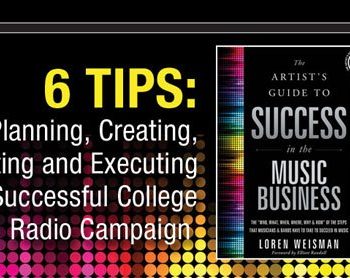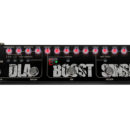Chris Mollere
Freelance Music Supervisor
Contact: sendchrismusic@gmail.com
Credits: (Television, Film, Games, Video) Kyle XY, Pretty Little Liars, The Vampire Diaries, Greek, The Originals, Chasing Life, 10 Things I Hate About You, I Hope They Serve Beer in Hell, Bad Words, Hell Baby, War Games: The Dead Code
Honors/Awards: 2015 Guild Of Music Supervisors Award nominee for Jimi: All Is by My Side
How did you get into music supervision?
I’ve always loved music and managed bands in Austin. But, my start in music supervision was an accident. When I moved to Los Angeles I met a director who couldn’t find music for his film because his budget was so low. I offered to help him and found a bunch of songs that he loved. Ever since, I’ve been doing music supervision for film, advertising and TV.
How is supervision for film, advertising and TV different?
Film is a much longer process, but once it’s finished it has a long life. Advertising is quicker, but a lot of people have a say in the final product. TV is probably the most fun, especially if you’re involved at the pilot stage where you get to create a musical identity for the show. If you break all the rules from the get-go, you can pretty much do whatever you want. But, television has a very tight schedule––sometimes you only have 24 hours to deliver music––week after week. And with TV you can place songs that haven’t been released yet. That sort of thing could make a mark and break an act.
Would you consider an unknown act for placement?
I’m open to it, but I would try to hook them up with a rep I know to make sure that the rights are clear. You want to trust people but I have to be careful when it comes to clearing rights––you want to avoid lawsuits and situations that could hurt your reputation.
Is social media a factor in finding music?
It can be… I like to use Twitter. But Facebook is almost obligatory and sometimes it’s the only way to contact an artist. I do a lot of online research, too, and go to music festivals like SXSW and Lollapalooza.
What’s your relationship with artists?
I like to help artists––I know their struggles. With all the changes in the music industry, multiple income streams are important. And licensing can give them exposure and produce income they can use to support their act. Licensing fees and performance royalties help artists to focus on their music, which helps all of us. With enough exposure and a steady stream of income artists can be artists
How have lower budgets affected placements?
While budgets have declined, there’s music for any budget. Actually, smaller budgets have opened the door for lesser-known acts.
What type of music works best for placements?
I look for music that has a heart and elevates the project. It’s meant to enhance the emotions of a scene, so I like music that moves me. It’s also helpful if there’s an instrumental mix available. Sometimes the lyrics don’t fit but the music is perfect.
Do you use music libraries?
Sometimes, especially if I need musical wallpaper in the background. They’re also less expensive.
What could hurt an artist, rep or submission?
If someone isn’t familiar with the projects I’m working, they’ll waste my time. If there are problems with the rights, that could be critical. Worse, if they hide problems, and I find out, I will not respond to their calls or emails anymore.
What information do you need with submissions?
I prefer links to the music, rather than attachments. Digital files also need metadata that lists the song title, writer credits, publishing info and anything else that might be relevant. I’m most concerned about rights clearance.












